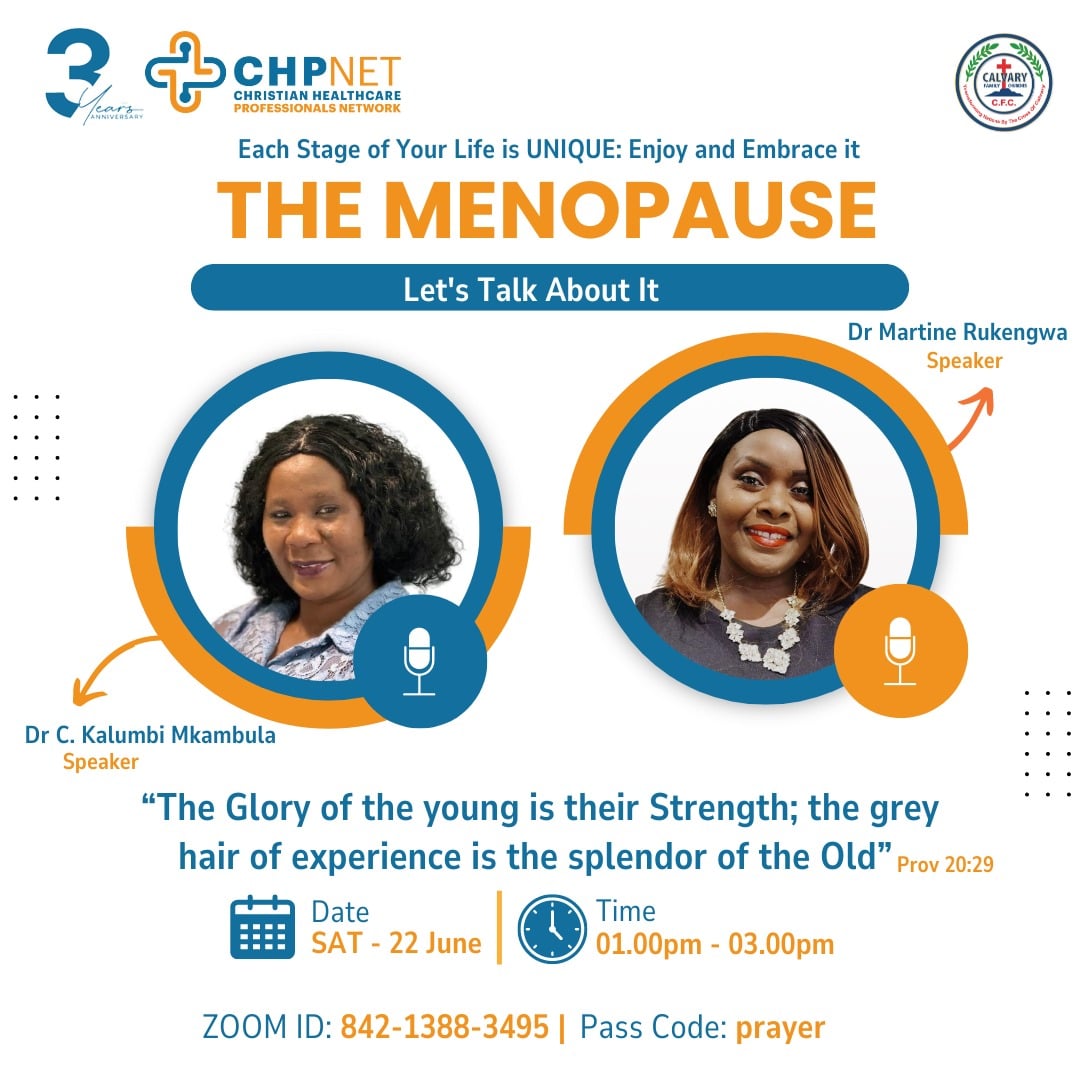
- This event has passed.
The Menopause
November 2 @ 6:50 pm

Menopause marks a significant transition in a woman’s life, signifying the end of her reproductive years. It typically occurs between the ages of 45 and 55, but can vary widely from woman to woman. This natural biological process is characterized by the cessation of menstrual periods for 12 consecutive months and is accompanied by a decline in the production of hormones such as estrogen and progesterone. Symptoms and Effects While menopause is a normal part of aging, it can bring about a variety of physical and emotional symptoms, including:
- Hot Flashes and Night Sweats: Sudden feelings of heat that spread over the body, often accompanied by sweating and a flushed face.
- Sleep Disturbances: Difficulty falling asleep or staying asleep, often due to night sweats.
- Mood Changes: Increased irritability, anxiety, or feelings of sadness.
- Vaginal Dryness and Discomfort: Decreased lubrication and elasticity, leading to discomfort during intercourse.
- Decreased Libido: A reduction in sexual desire and arousal.
- Memory and Concentration Issues: Difficulty focusing or experiencing mild forgetfulness.
- Physical Changes: Thinning hair, dry skin, and weight gain, particularly around the abdomen.
Management and Treatment Options Managing menopause effectively involves a combination of lifestyle changes, natural remedies, and medical treatments tailored to individual needs. Options include:
- Hormone Replacement Therapy (HRT): Helps replenish declining hormone levels, alleviating many menopausal symptoms.
- Lifestyle Adjustments: Regular exercise, a balanced diet, and adequate sleep can help mitigate symptoms.
- Alternative Therapies: Herbal supplements, acupuncture, and yoga are popular complementary approaches.
- Medical Treatments: Non-hormonal medications and treatments for specific symptoms, such as antidepressants for mood changes or vaginal estrogen for dryness.
Support and Resources Navigating menopause can be challenging, but you are not alone. CHPNet.org provides a wealth of resources to support you during this transition:
- Educational Articles: In-depth information on symptoms, treatments, and lifestyle adjustments.
- Expert Advice: Insights and tips from healthcare professionals specializing in menopause.
- Community Support: Forums and support groups where you can connect with others experiencing similar challenges.
- Health Tools: Interactive tools to track symptoms, manage health, and communicate with your healthcare provider.
Embrace this new phase of life with confidence and knowledge. Visit CHPNet.org to explore our comprehensive menopause resources and find the support you need.


